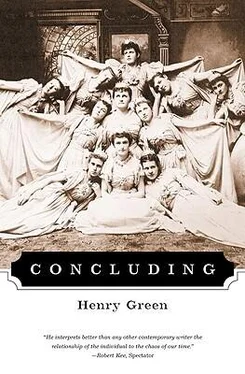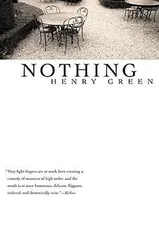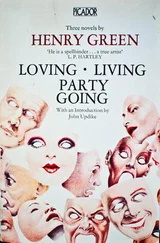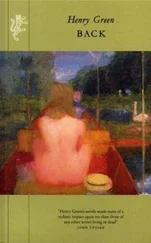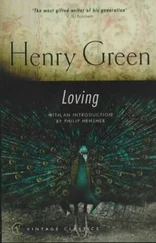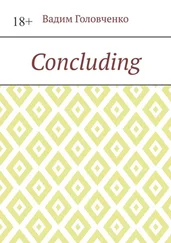"My dear," she said. "No shop at meals."
"They might need a little grain," Winstanley admitted.
"And how so?" her Principal demanded.
"The Chinese pheasants, ma'am."
"Of course," Edge replied, who had, in fact, forgotten these decorative birds. "I do not deny the wheat. But there lies my whole difficulty. If Miss Baker and I are exercised in our minds over this matter of our Supervisor and the bran, and really it is peace at any price these days, for I do not suppose we shall mention it in the kitchen," she sneered, knowing full well that her remarks would be repeated to Mrs Blain, in all probability by Sebastian Birt, "I do beg leave to question the wisdom of additional food at certain seasons. We already have an unofficial cat," she added, not looking at Marchbanks, no longer afraid.
"But ma'am," Winstanley said with tact, "it's swans, I'm certain."
"What is?"
"That break a person's leg with their wings."
"I'm sure Alice doesn't get anything," Miss Marchbanks interjected. At just a momentary glance they could, each of them, see that she had flushed with rage.
"Quite, Marchbanks," Edge said in a soothing voice. "I never even suggested it. We all respect. . there can be no question. . Well, in a word, it is Mr Rock's white Persian, and who is there can stop a cat making free with the Grounds?" She seemed almost embarrassed. She was still not quite herself.
"She never even gets a sup of milk while over here, it's a shame," Miss Marchbanks said. She could not let the matter drop. Miss Edge gave her a small bow.
"But a goose is not much less large than a swan," Edge went on, turning to Winstanley. "And consider the power they must have in their shoulder muscles for long migratory flights. I know some of my girls are simply in terror of the bird."
Sebastian Birt cleared his throat, as though about to speak. But Edge glared at him, and Baker gave such a glance of doom that he did not have the heart. Then Miss Inglefield made her first contribution.
"Grace, ma'am," she said.
"Good heavens," Edge exclaimed, verifying the fact that all the girls had finished. "Whose turn is it, Baker?"
"Yours dear, I think."
Upon which Edge rose, and, with her, all the staff, and each one of the students. When the noise had subsided Miss Edge brought the session to a close with a shout of two prime, immemorial words. "Thank you," she cried in a great voice, looking brilliant.
"Thank you, ma'am," they all replied traditionally, and luncheon was over.
The buzzers went for tea.
It was five o'clock. Most of the students were on their beds, after waiting in queues all afternoon to iron the cotton frocks they were to wear that same evening, for the dance. These first floor dormitories overlooked the Park, with tall windows brilliant in summer sky, as the variously bedded girls lay yawning, stretching, happy to take time because today they were allowed half an hour in which to be down for tea.
Panelling around the walls was enamelled in white paint, as also the bedsteads with pink covers, the parquet floor was waxed and gold, two naked Cupids in cold white marble, and life size, held up a slab of green above a basket grate, while white and brown arms were stretched into the tide of late afternoon pouring by; a redhead caught fire with sun like a flare and, out of the sun, eyes, opening to reflected light, like jewels enclosed by flesh coloured anemones beneath green clear water when these yawn after shrimps, disclosed great innocence in a scene on which no innocence had ever shone, where life and pursuit was fierce, as these girls came back to consciousness from the truce of a summer after luncheon before the business of the dance.
For already shadows were on the creep towards this mansion.
Beech trees were pointing fingers out along the quiet ground. Day was committed to night; the sequence here is light then darkness, and what had been begun in this community under the glare of morning, is yet to be concealed in a sharp fresh of moonlight, a statuary of day after sunset, to be lost, at last, when the usual cloud drifts over the full moon.
"Hasn't it been hot?" a girl's clear voice announced. How warm it had been, Miss Edge shaped five words without a sound as, at the noise of the buzzers, she turned on a chaise longue across which she was stretched in the sanctum. Then she sat up straight. How could she have dropped off, she asked herself, with Mary missing yet? She reached out for the telephone and spoke to Matron. No, there was still no news. Then, as her head cleared and she moved a dry tongue about her mouth, she felt more than ever this temporary disappearance must only be an escapade; that, at all events, their little Fiesta, as she now termed the coining entertainment, could not be cancelled at the whim of a single student who, in a moment of jealousy perhaps, had hidden herself from some adolescent qualm, thus laying their Institute open to the Grand Inquisition of a State Enquiry, and the horror of Reports.
Meantime the lovers, Sebastian and Elizabeth, were asleep in that same corner of a fallen beech found by Merode, and to which they had returned. They lay under lace of gold, through the hush of an afternoon's fine heat, at rest in one another's added warmth, in a peace of sleep.
Her tangled head lay on his arm, her left hand between the tutor's shirt and jacket. She stirred, and it woke him. When he moved, she came awake in turn. She yawned, and her tongue, too, was coated. She said, "Oh darling, it's cooler." She kissed his sticky cheek. Then she sat straight with a jerk.
He lay on his back, wore a sulky expression.
"Good heavens," she went on, "Here we've been snoring, isn't it awful, and all the while that poor girl's lord knows where, dear. What d'you think? Isn't it awful?"
He gently said, "Don't fuss."
"Yes but I've got to think of your position, haven't I? I mean it's no use to make pretence that what Gapa calls the Babylonian harlots just aren't here, is it? Particularly when they've got it in for you, darling."
"The child's probably back now," he murmured.
"Why be beastly about her, Seb? I expect, you know, she couldn't help herself, poor soul. Driven to it, don't you see, by something or other, wouldn't you say?"
He raised himself. He kissed her. Then he looked at his watch.
"Tea," he said, and got to his feet.
"Well we did search about, I mean before, didn't we?" she asked, scrambled up, and tried to smooth her slacks, at one and the same time.
When she heard the buzzers, Ma Marchbanks took a wet towel off closed eyes and let her hand fall back, which still held this towel, over the far side of the armchair. She had a splitting headache. She had been backwards and forwards in the Park through blazing heat of afternoon, and now her head drummed with sun, roll upon roll of pain behind the eyes to cauterise her brain. And she could not ignore that scene she had had with Adams.
She'd come on him at such a curious spot, the clearing by the New Plantation, where he was seated in a sort of hut, which she did not recognise, that seemed to be made entirely of old doors, and which, if behind a dwelling house instead of out in the open, could have been taken by anyone for the outside privy back of an uncultivated garden of a few wild, gay, separate flowers.
"Adams," she'd said, as she thought secure in his sympathy, for they had always got on well, "Oh Adams I am so worried." Just that. And he'd answered with a really rude voice, "It's what every man and woman living is heir to, miss."
"Which does not make anything easier, does it?" she'd replied, and wondered if he spent every afternoon like this, not chopping trees. At that he had come right towards her, away from that hut or whatever the thing was, and, when all was said and done, likely enough he would have acted much the same whatever she said, but he'd cried out in the revealing sunlight, and she had seen he was shaking, "Why do you keep on at me, the lot of you?" he had shouted, looking dreadful, and it was then she'd remembered he had lost his wife.
Читать дальше
